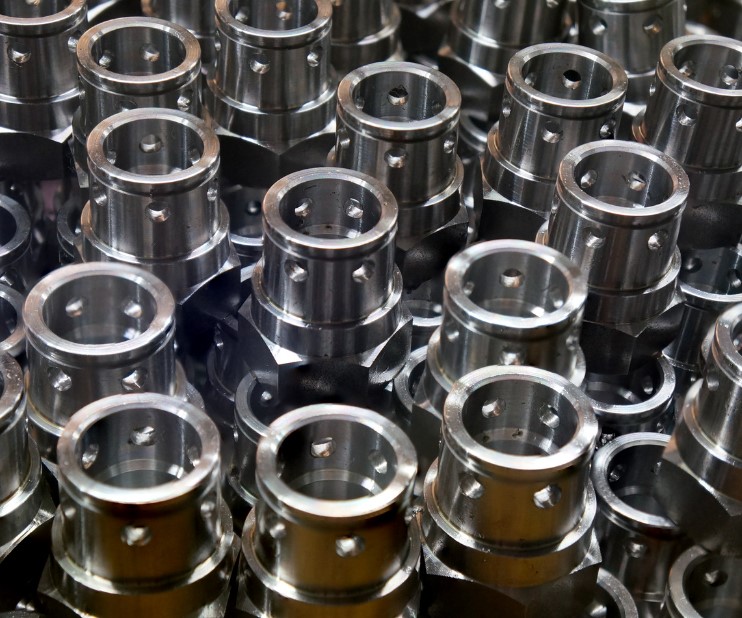In the last few decades, Computer Numerical Control (CNC) Machining has revolutionized the realm of manufacturing and engineering. By integrating digital technology with traditional machine tools, CNC machining has emerged as a predominant method for creating high-precision pieces and components in a variety of industries. This article focuses on the benefits and applications of CNC-machining. It also highlights its influence on the current technology.

The Mechanics of CNC Machining
CNC Machining, also referred to as subtractive manufacturing is a method which takes material away to create an desired shape from a solid piece of metal. The software utilized to control the machine’s movement is pre-programmed. The code created for CNC machines differs depending on the specific model of machine and the complexity of the item being made. But the basic principle remains the same: a high speed cutter is meticulously shaves material in order to make the final product.
The precision of CNC manufacturing is among the most important benefits. Digitalization allows for an accurate and consistent production. This decreases the chance of human error and ensures the same quality across batches. This level of precision is essential in areas such as aerospace and medical devices.
The Role of Digitalised Computers in CNC Machine Operations
CNC Machining is a very efficient and precise process which is dependent on digital technology. CNC machines are controlled by specialized software that automates the entire manufacturing process. The software converts CAD models into precise instructions that the CNC machine follows in order to make the item. The instructions set everything from speed and direction to the depth and angle of every cut.
In larger industrial facilities on a size, computers can be integrated directly into CNC machines. This allows for seamless communication and control. This integration allows real-time monitoring, which ensures the highest performance and reduces the time between maintenance. Automating CNC machining permits the continuous operation. This increases productivity and reduces time to market.
The Advantages of CNC Machining
CNC machining has many advantages over other manufacturing methods. The ability to create intricate and complex components that are precise is one of the biggest advantages. CNC machining is accurate and eliminates the need to make manual adjustments or Rework. This helps reduce wasted time and boosts efficiency. Additionally, CNC machines can operate continuously, which makes them suitable for production runs with high volumes.
CNC milling has another benefit that is versatility. Through the modification of the program it is possible to make a variety of different parts. CNC machining is adaptable which makes it suitable for prototyping as well in mass production. This allows manufacturers to rapidly respond to changes in market demand.
The process of automating CNC machineries also enhances safety in the workplace. Injury and accident risks are minimized when manual intervention is not needed. Additionally, the consistency in quality of CNC-machined products improves quality and reliability, adding to the satisfaction of the customer and enhancing credibility of the brand.
CNC Machining Services: Benefits to Industries
In a variety of industries, CNC machining has proven to be highly efficient, precise, and versatile. In the aerospace industry, CNC machines produce critical components that have to meet strict quality and safety standards. Medical device manufacturers rely on CNC machines for the manufacturing of sophisticated surgical instruments and implants, in which precision is paramount.
CNC machineries are utilized in the automobile industry to create engine components, transmissions parts, and intricate interiors and exteriors. The same goes for the electronics industry can benefit by CNC’s ability to produce small, precise parts that are used in consumer electronics, communication devices, as well as other electronic items. Even the jewelry and art industries rely on CNC technology to produce intricate designs and customized pieces.
The future of CNC Machining
As technology advances, the capabilities of CNC machining are expected to continue to improve. CNC’s capabilities will be developed by new technologies like multi-axis machines additive manufacturing, advanced materials. In addition, machine learning and AI will enhance CNC productivity in machining.
CNC machining is an extremely powerful tool that has transformed manufacturing and engineering in the current era. It is a tool that offers unmatched accuracy, flexibility, and effectiveness. Its capability to make complex parts with high precision makes it an indispensable tool across various industries. As technology advances, CNC machining will undoubtedly remain an integral role in determining the future of manufacturing.

